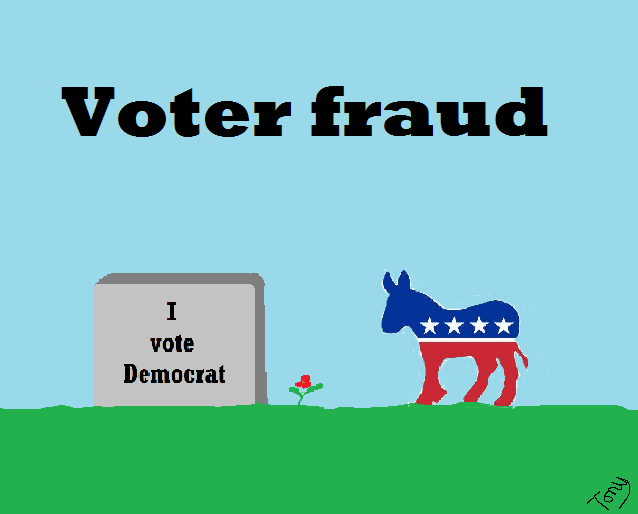The Return of Vladimir Vladimirovich Putin (and Why This is Bad News for Russia)
Yes, bad news for Russia, but equally bad for the world. Can anyone say, "Gog and Magog"?
Well the question of who is going to run for president in 2012 has been conclusively answered: Vladimir Vladimirovich Putin. Maybe you’ve heard of him before.
I usually try to keep a somewhat even keel when looking at Russia (a certain amount of dispassion helps when dealing with such a country) but in this particular case I’m not even going to pretend that I am not hugely disappointed and more than a little disgusted. Russia has made a great deal of, frequently ignored, progress over the past decade, but if there was a single decision that could comprehensively scuttle that progress, Putin’s decision to return to the presidency is it.
There is simply no way to skirt the issue or to minimize the significance of what just occurred at the United Russia party congress – it is an absolute catastrophe for the country and marks a turning point in its history. Unless there is some sort of totally unexpected reversal of course, or unless someone (perhaps Medvedev again?) replaces Putin in 2018, the country is doomed to be an increasingly fossilized political anachronism, a continent-sized version of Kazakhstan or Belarus.
This isn’t necessarily about “democracy” – China is almost completely undemocratic but has evolved complicated methods to ensure the regular turnover of elites – as it is about avoiding becoming a “sultanistic” backwater like Somoza’s Nicaragua or Iran under the Shah. Sultanism has long been a danger in a country like Russia with an atomized civil society, a scant history of democracy, and a long tradition of personalized rule, but it seemed that, with the emergence of “the tandem” and its awkward style of collective leadership, Russia might have turned some sort of corner: the country wouldn’t be ruled democratically, but it also would quite clearly not be ruled by the dictates of a single individual.
While Putin is not and will not be omnipotent*it seems pretty clear that his opinion is the only one that really matters in Russia today and the only one that will matter going forward. Although during his time as president Medvedev wasn’t nearly as powerful as Putin, he pretty clearly had some leeway in his decision making, and leaked diplomatic cables portrayed a rough sort of power-sharing arrangement among the various “clans” in the Kremlin. The regression back towards straightforward one-man rule is deeply unhealthy for Russia and makes it something of an outlier in a world where political authority is generally de-centralizing.
CONTINUE
Well the question of who is going to run for president in 2012 has been conclusively answered: Vladimir Vladimirovich Putin. Maybe you’ve heard of him before.
I usually try to keep a somewhat even keel when looking at Russia (a certain amount of dispassion helps when dealing with such a country) but in this particular case I’m not even going to pretend that I am not hugely disappointed and more than a little disgusted. Russia has made a great deal of, frequently ignored, progress over the past decade, but if there was a single decision that could comprehensively scuttle that progress, Putin’s decision to return to the presidency is it.
There is simply no way to skirt the issue or to minimize the significance of what just occurred at the United Russia party congress – it is an absolute catastrophe for the country and marks a turning point in its history. Unless there is some sort of totally unexpected reversal of course, or unless someone (perhaps Medvedev again?) replaces Putin in 2018, the country is doomed to be an increasingly fossilized political anachronism, a continent-sized version of Kazakhstan or Belarus.
This isn’t necessarily about “democracy” – China is almost completely undemocratic but has evolved complicated methods to ensure the regular turnover of elites – as it is about avoiding becoming a “sultanistic” backwater like Somoza’s Nicaragua or Iran under the Shah. Sultanism has long been a danger in a country like Russia with an atomized civil society, a scant history of democracy, and a long tradition of personalized rule, but it seemed that, with the emergence of “the tandem” and its awkward style of collective leadership, Russia might have turned some sort of corner: the country wouldn’t be ruled democratically, but it also would quite clearly not be ruled by the dictates of a single individual.
While Putin is not and will not be omnipotent*it seems pretty clear that his opinion is the only one that really matters in Russia today and the only one that will matter going forward. Although during his time as president Medvedev wasn’t nearly as powerful as Putin, he pretty clearly had some leeway in his decision making, and leaked diplomatic cables portrayed a rough sort of power-sharing arrangement among the various “clans” in the Kremlin. The regression back towards straightforward one-man rule is deeply unhealthy for Russia and makes it something of an outlier in a world where political authority is generally de-centralizing.
CONTINUE

